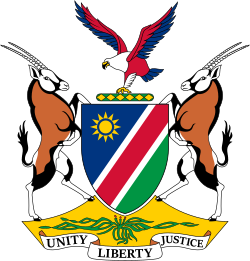 |
|---|
Democratic Action for Namas was a political party in Namibia with ethnic affiliation to the Nama people. The chairman was Willem Oasib Boois. It was founded on 20 November 1984. It was one of the parties that merged into the Federal Convention of Namibia [1] in 1988. [2]